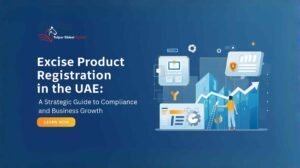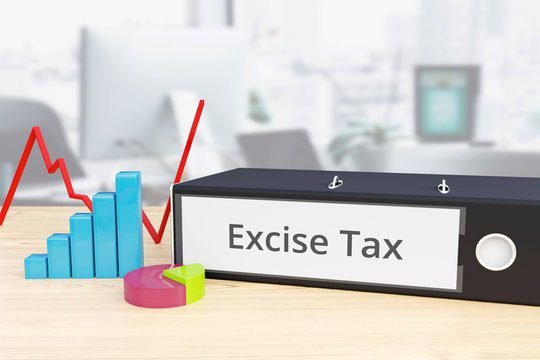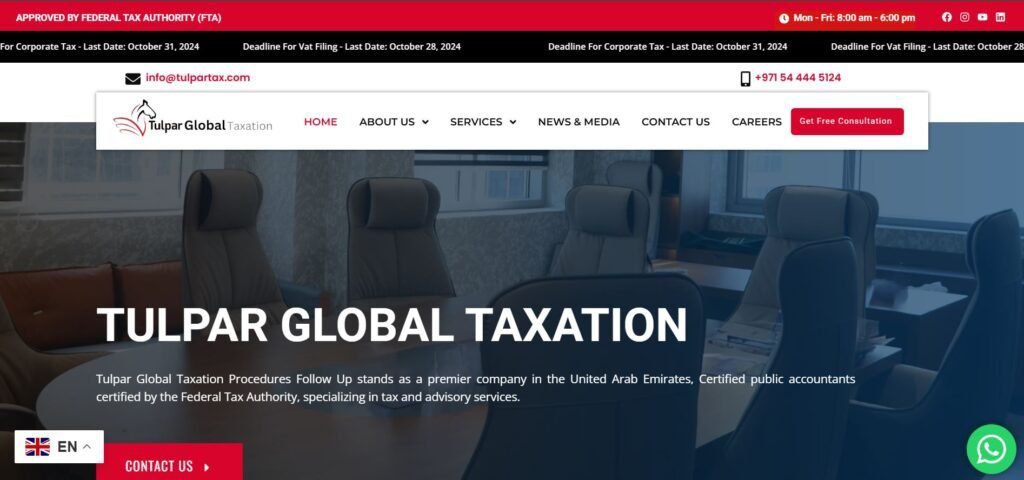
Excise Tax Consulting Services in UAE
Table of Contents
Related Articles


Sugar Tax Reform Will Crush Small UAE Drink Brands

The Impact of CARF on UAE Crypto Traders | Ready to Report FTA

Let's Talk
Sign Up For Free Consultation
Excise tax consulting services
Tulpar Global Taxation Services offers expert excise tax consulting services in the UAE, specifically tailored to meet the needs of businesses dealing with excise goods. As organizations navigate the complexities of excise duty imposed by the federal tax authority, our dedicated team provides comprehensive excise tax advisory services. We ensure that your business complies with all tax laws and regulations in the region, helping you to manage your tax liability effectively. Our tax consultancy services cover everything from understanding indirect tax implications to the proper procedures for excise tax registration.

In Dubai, businesses must register for excise tax if they manufacture or import goods that fall under the excise regime. Tulpar Global Taxation Services simplifies this process by offering targeted tax consulting tailored to your specific requirements. Our experts stay updated with the latest changes in federal tax laws to provide timely advice and support. Whether you need assistance with tax registration or ongoing compliance, our tax advisory service in Dubai will guide you through the intricacies of excise tax in UAE and ensure that you meet all necessary obligations.
Partnering with Tulpar Global Taxation Services means gaining access to a wealth of knowledge and experience in excise tax consulting. We pride ourselves on delivering personalized tax consulting services that address your unique business challenges. Our team will help you identify potential tax savings and develop strategies to minimize your tax obligation while ensuring full compliance with the federal tax authority requirements. Trust us to be your go-to resource for excise tax solutions in the UAE, enabling you to focus on your core business activities while we handle the complexities of taxation.
Unlock the Secrets of Excise Tax

Excise tax is a vital element in the financial ecosystem of businesses in the United Arab Emirates (UAE). This form of indirect taxation specifically targets certain goods, such as tobacco products and sugary beverages, which are deemed harmful to human health or the environment. The excise tax not only influences pricing strategies and consumer choices across various industries but also generates significant revenue for the government.
For businesses, a clear understanding of the excise tax framework is crucial for ensuring compliance, as failure to adhere to these regulations can result in severe penalties. Furthermore, effective management of excise tax obligations can lead to strategic financial planning, ultimately contributing to overall business success. By navigating the complexities of excise tax, businesses can position themselves advantageously in a competitive market, while also fulfilling their civic responsibility to contribute to public health and welfare through the tax system.
What is Excise Tax?
Excise tax is a form of indirect tax imposed on specific goods and services. Unlike sales tax, which consumers pay at the point of sale, excise tax is typically included in the price of the product and is paid by the manufacturer or seller. This tax is primarily aimed at regulating the consumption of certain goods that are often associated with negative externalities, such as health issues or environmental concerns.
The Purpose of Excise Tax
The primary goal of excise tax is twofold:
- Discouraging Harmful Consumption: By imposing taxes on goods like tobacco, alcohol, and sugary drinks, the government aims to reduce their consumption. The higher prices resulting from excise taxes can deter individuals from purchasing these products, thereby promoting healthier lifestyle choices.
- Generating Revenue: The revenue generated from excise taxes is allocated to various public services and infrastructure projects, supporting the overall economy. This revenue is particularly crucial in the UAE, where the government is diversifying its income sources away from oil dependency.
The Introduction of Excise Tax in the UAE
In the UAE, excise tax was officially introduced on October 1, 2017, under the Federal Decree-Law No. 7 of 2017 on Excise Tax. This landmark decision aimed to enhance government revenue and address public health concerns. The tax regime has since evolved, impacting a range of industries and consumer behaviors.
Categories of Goods Subject to Excise Tax
The UAE government has classified excise goods into three main categories, each with distinct tax rates:
- High Rate: Goods such as tobacco products and energy drinks are taxed at a rate of 100%. This significant tax is intended to discourage consumption and promote public health.
- Medium Rate: Carbonated drinks, including sugary beverages, are taxed at a rate of 50%. This approach aims to reduce sugar consumption and combat obesity.
- Other Goods: Certain other products may also fall under excise tax regulations, though they may not be as prominently regulated as the aforementioned categories.
Understanding these classifications is crucial for businesses engaged in the sale or production of these goods to ensure compliance with tax regulations.
Navigating UAE’s Excise Tax Landscape

Navigating the excise tax landscape in the UAE requires a thorough understanding of the applicable laws and regulations. The landscape has evolved since the introduction of excise tax, and staying compliant is vital for businesses operating in this environment.
Overview of UAE Excise Tax Law
The UAE excise tax law lays out the specific provisions regarding how excise tax is applied. It details the types of goods and services subject to tax, the applicable rates, and the obligations businesses have in terms of registration, payment, and reporting.
Goods and Services Subject to Excise Tax
Excise tax is imposed on a select list of goods, which include:
- Tobacco Products: This category includes cigarettes, cigars, and other tobacco products. The high excise tax rate reflects the government’s intent to reduce smoking rates and related health issues.
- Carbonated Beverages: These beverages, especially those with added sugar, fall under the medium tax rate. The tax aims to discourage excessive sugar consumption among the population.
- Energy Drinks: The health implications of energy drinks have led to their classification under excise tax, aimed at curbing their consumption among younger demographics.
- Sugary Drinks: Similar to carbonated beverages, sugary drinks are heavily taxed to promote healthier alternatives and combat rising obesity rates.
Registration for Excise Tax
All businesses that engage in the manufacture, import, or sale of excise goods are mandated to register for excise tax. This essential registration process is supervised and regulated by the Federal Tax Authority (FTA). Ensuring compliance with these regulations is crucial for maintaining good standing within the legal framework and for the smooth operation of your business. Proper registration not only helps avoid potential penalties but also facilitates the effective management of excise tax obligations.
Importance of Accurate Registration
Accurate registration is vital for managing excise tax liabilities effectively. Businesses must ensure that their excise tax registration is completed correctly to avoid complications during audits and inspections.
- Documentation Requirements: Businesses need to submit specific documents, including trade licenses, company information, and details of the excise goods handled.
- Tax Registration Number: Upon successful registration, businesses receive a unique tax registration number, which must be used in all transactions involving excise goods.
- Updating Registration Information: Businesses are required to update their registration details promptly whenever there are changes, such as a change in ownership or business structure.
Tulpar Global Taxation Services can assist in the registration process, ensuring that all necessary information is submitted accurately and timely.
Understanding Excise Tax: A Business Essential

Excise tax is a crucial element of a business’s financial management strategy and should not be overlooked. It plays a significant role in determining the operational costs associated with producing, importing, or selling excise goods. Understanding the implications of excise tax is essential for businesses as it directly influences pricing strategies, cash flow management, and ultimately, overall profitability. By effectively managing excise tax liabilities, companies can make informed financial decisions that enhance their competitiveness and support long-term growth. An in-depth comprehension of how excise tax impacts business operations will enable organizations to optimize their financial performance and ensure compliance with tax regulations.
The Nature of Excise Tax
As a form of indirect tax, excise tax is not directly charged to the consumer but is included in the pricing of goods. This indirect approach makes it crucial for businesses to understand their obligations and the implications of excise tax on their operations.
Implications for Businesses
- Cost Structure: Excise tax significantly affects the overall cost structure of products. Businesses must account for this in their pricing strategies to ensure they maintain healthy profit margins.
- Compliance: Non-compliance with excise tax regulations can result in substantial penalties. Businesses must understand their obligations regarding registration, reporting, and payment to avoid legal repercussions.
- Impact on Profit Margins: The excise tax rate applied to products will directly impact the final retail price. Businesses need to analyze their pricing strategies to absorb or pass on these costs to consumers without losing competitiveness.
Record-Keeping and Reporting
Maintaining proper tax records is essential for ensuring compliance with excise tax laws and regulations. This comprehensive documentation process includes meticulously recording the excise tax paid, the specific excise goods sold, and the corresponding tax rates applied to each transaction. Accurate tax records not only help businesses meet their legal obligations but also play a vital role in financial management and reporting.
By keeping detailed and organized records, businesses can streamline their tax filing processes, facilitate audits by tax authorities, and mitigate the risk of penalties associated with non-compliance. In addition, these records provide valuable insights into business performance, allowing for better strategic planning and decision-making. A proactive approach to tax record management is key to navigating the complexities of excise tax regulations effectively.
Best Practices for Record-Keeping
- Organize Records: Maintain a systematic filing system for all documents related to excise tax, including purchase invoices, sales receipts, and tax returns.
- Regular Updates: Update records regularly to reflect current tax liabilities and payments. Implementing an accounting software solution can help streamline this process.
- Audit Preparedness: Ensure records are organized and readily available for any audits conducted by the FTA. This includes keeping historical records for a minimum period, as stipulated by the FTA.
Tulpar Global Taxation provides auditing services to help businesses maintain accurate records and prepare for potential audits, ensuring compliance and reducing risk.
Why Excise Tax Matters for Your Business

Understanding the significance of excise tax is essential for business owners and financial managers. Compliance with excise tax UAE regulations goes beyond mere legal obligations; it plays a vital role in ensuring the financial health of a business. Adhering to these regulations helps prevent costly penalties and fosters a culture of integrity. Furthermore, effective management of excise tax can enhance operational efficiency and improve cash flow. Ultimately, recognizing the importance of excise tax supports long-term business sustainability and growth.
Legal Compliance and Reputation
Compliance with excise tax regulations is essential for maintaining a business’s reputation. Non-compliance can lead to legal penalties, which may tarnish a company’s image and impact its relationships with stakeholders.
Benefits of Compliance
- Avoiding Penalties: Adhering to excise tax regulations prevents costly penalties and fines. The FTA imposes strict penalties for non-compliance, including financial fines and potential legal action.
- Building Trust: Compliant businesses foster trust among customers and stakeholders, enhancing their reputation in the market. A strong reputation for compliance can also serve as a competitive advantage.
- Enhanced Operational Efficiency: Streamlined tax processes lead to improved operational efficiency. Businesses that invest in proper tax planning and compliance strategies can allocate resources more effectively.
Financial Implications
Excise tax can significantly impact a business’s financial health, influencing both operational costs and pricing strategies. By understanding the implications of excise tax, businesses can effectively manage their finances and avoid unexpected liabilities. This knowledge empowers business owners and financial managers to make informed decisions that align with their overall financial strategy. Additionally, effective excise tax management can lead to improved cash flow, allowing for reinvestment and growth opportunities. Ultimately, a thorough understanding of excise tax is essential for maintaining a competitive edge in the marketplace.
Key Financial Considerations
- Tax Liability Management: Accurately reporting excise tax liabilities helps businesses avoid overpayment or underpayment issues. This requires a robust accounting system to track tax obligations.
- Budgeting: Incorporating excise tax into financial planning and budgeting is essential for overall financial stability. Businesses should allocate funds for expected tax liabilities in their budgets to prevent cash flow issues.
- Cost Control: Analyzing the impact of excise tax on pricing strategies can help businesses maintain control over their costs. Understanding how excise taxes affect competitive pricing is vital in a highly competitive market.
Strategic Financial Planning
Strategic financial planning that incorporates excise tax considerations can enhance a business’s overall financial health. This includes:
- Scenario Analysis: Conducting scenario analyses to understand how changes in excise tax rates might impact overall profitability.
- Risk Management: Identifying risks associated with excise tax compliance and developing strategies to mitigate these risks can safeguard a business’s financial stability.
Tulpar Global Taxation offers strategic financial consulting to help businesses navigate excise tax implications and develop comprehensive financial plans that incorporate tax considerations.
Expert Excise Tax Advisory Services

Given the complexities associated with excise tax, businesses often require expert guidance to navigate the intricate regulatory landscape. Understanding the specific requirements and implications of excise tax can be challenging for many organizations. This complexity can lead to potential pitfalls and costly errors if not managed properly. This is where Tulpar Global Taxation can provide significant value. With their expertise and tailored solutions, they help businesses ensure compliance while optimizing their tax strategies for better financial outcomes.
Our Comprehensive Excise Tax Services
Tulpar Global Taxation specializes in offering tailored excise tax advisory services to businesses in the UAE. Our expert team is equipped to assist clients in various aspects of excise tax management.
Registration Assistance
We help businesses navigate the registration process for excise tax, ensuring compliance with all requirements. Our services include:
- Documentation Preparation: We assist in preparing and submitting all necessary documentation for excise tax registration.
- Ensuring Accuracy: Our team ensures that all registration information is accurate and up-to-date, reducing the risk of complications.
Tax Compliance and Reporting
Ensuring compliance with excise tax regulations is critical for avoiding penalties. Our compliance services include:
- Regular Audits: We conduct regular audits of your excise tax records to ensure accuracy and compliance with FTA regulations.
- Tax Return Preparation: We assist in preparing and submitting tax returns accurately and on time, reducing the risk of non-compliance.
- Ongoing Support: Our team provides ongoing support and advice to help businesses stay updated on any changes to excise tax regulations.
Strategic Planning and Consultation
Our experts provide strategic planning services to help businesses effectively manage their excise tax obligations. This includes:
- Tax Optimization Strategies: We develop strategies to minimize tax liabilities while ensuring compliance with regulations.
- Training and Workshops: We offer training sessions to educate businesses about excise tax implications and compliance best practices.
Partnering with Tulpar Global Taxation

Partnering with Tulpar Global Taxation means gaining access to a wealth of knowledge and extensive experience in excise tax management. Our team comprises seasoned professionals who understand the intricacies of excise tax regulations and their implications for your business. We recognize that each organization faces unique challenges, and our commitment to excellence ensures that your business is well-positioned to navigate the complexities of excise tax effectively. By collaborating with us, you will benefit from customized strategies tailored to your specific needs, allowing you to focus on what you do best—growing your business.
Conclusion: Partner with Us for Success
Navigating the complexities of excise tax can be daunting, presenting challenges that could impede your business’s growth if not addressed appropriately. However, with the right partner, businesses can not only survive but thrive in this regulatory landscape. Tulpar Global Taxation is committed to providing expert guidance and unwavering support, ensuring compliance while maximizing savings. Our mission is to empower businesses to achieve their financial goals through strategic tax planning and insightful advice. Together, we can develop a comprehensive approach to excise tax management that enhances your operational efficiency and fosters long-term success.
Take the First Step Towards Excise Tax Mastery
Unlock the secrets of excise tax with Tulpar Global Taxation as your trusted partner in navigating this complex field. Our team is dedicated to helping your business succeed by providing comprehensive excise tax services tailored to your specific needs. Contact us today to learn more about how we can assist you in mastering excise tax management. Our experts are ready to guide you through the intricacies of excise tax compliance and optimization, ensuring that your tax strategy is not only effective but also aligned with your business objectives. Let’s work together to pave the way for your business’s success in excise tax management.
Excise Tax consulting services help businesses comply with UAE Excise Tax laws applicable to specific goods such as tobacco, electronic smoking devices, soft drinks, energy drinks, and sweetened beverages. These services cover registration, tax calculation, filing, and audit support. Professional consulting minimizes penalties and operational risks.
Manufacturers, importers, and stockpilers of excisable goods require Excise Tax consulting services. Businesses involved in trading or distributing excisable products also benefit from expert guidance. Early consultation is critical due to strict compliance requirements.
Yes, Excise Tax registration is mandatory before carrying out any activity involving excisable goods. Late or missed registration can result in severe penalties. Excise Tax consultants ensure timely and correct registration with the Federal Tax Authority (FTA).
Excise Tax is calculated based on the higher of the retail selling price or the designated tax base set by the FTA. Rates typically range from 50% to 100%, depending on the product. Accurate valuation is essential to avoid underpayment or reassessment.
Excise Tax returns are generally filed on a monthly basis. Returns must include details of excisable goods produced, imported, released, or held in stock. Timely and accurate filing is critical to remain compliant.
Businesses must maintain detailed records of stock movements, imports, production, and tax calculations. These records must be retained for the prescribed period and be audit-ready. Poor documentation is one of the most common compliance failures.
Common risks include incorrect product classification, under-declaration of quantities, incorrect valuation, and failure to file returns on time. Many businesses also misunderstand stockpiling rules. These errors often trigger FTA audits and penalties.
Excise Tax refunds are available only in limited situations, such as export or destruction of excisable goods under FTA supervision. Strict documentation and approval processes apply. Expert handling increases the success of refund claims.
Excise Tax consultants assist with audit preparation, documentation review, and communication with the FTA. They help explain tax positions and correct issues proactively. Professional support significantly reduces audit stress and exposure.
Experienced tax advisors with in-depth Excise Tax knowledge offer reliable consulting services. Working with Tulpar Global Taxation helps businesses achieve full Excise Tax compliance, reduce penalties, and stay audit-ready.
